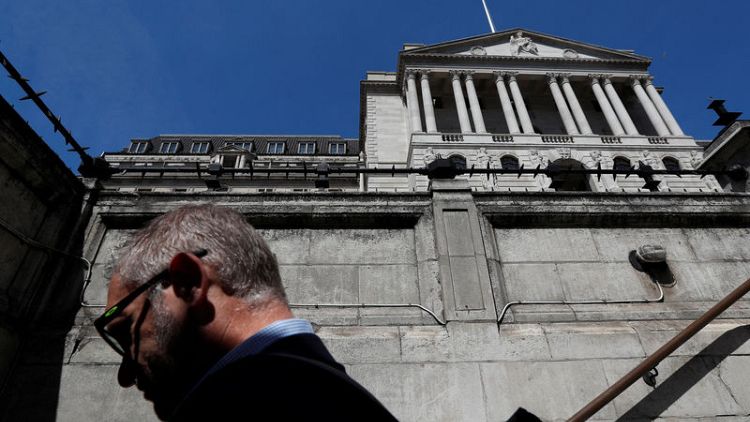By David Milliken
LONDON (Reuters) - Foreigners' net holdings of British government debt fell by a record amount last month, a move partly driven by a large volume of maturing bonds but one which also revived concerns about the effect of Brexit on investor appetite.
Bank of England data released on Thursday showed a net 17.153 billion pound drop in foreigners' holdings in July, the largest since records began in 1982, and up sharply from net sales of 1.362 billion pounds in June.
The fall in holdings can represent both outright sales and investors deciding not to immediately reinvest the proceeds of gilts that mature, and some analysts played down the move.
"I think we have to take those data with a pinch of salt," said Vatsala Datta, a fixed income strategist at Royal Bank of Canada, a primary dealer in British government debt.
"In months with big redemptions we typically see that kind of flow, and it reverses in the following month," she said, adding that gilt prices had been steady through July.
Some 33.5 billion pounds worth of gilts matured last month, and issuance totalled 12.9 billion pounds, giving net redemptions of 20.6 billion pounds for the gilt market overall -- the highest for any month since September 2014.
That said, other months with heavy net redemptions, such as in March when maturities outstripped new issuance by 20.0 billion pounds, did not see huge falls in foreign holdings.
July's gilt sales may have reflected heightened worries about Brexit, said David Owen, chief European financial economist at U.S. bank Jefferies, another primary dealer.
Britain has the largest current account deficit of any major advanced economy, according to IMF data, and BoE Governor Mark Carney warned voters before 2016's Brexit vote that the country relied on "the kindness of strangers" for its financing needs.
Boris Johnson resigned as UK foreign minister in July in protest at Prime Minister Theresa May's first detailed proposals for Britain's post-Brexit relationship with the EU.
"This underlines the importance of managing the UK's exit from the EU as smoothly as possible, especially given the on-going need to help finance the UK's current account deficit," Owen wrote in a note to clients.
(This version of the story corrects day of week in para 2.)
(Reporting by David Milliken)



